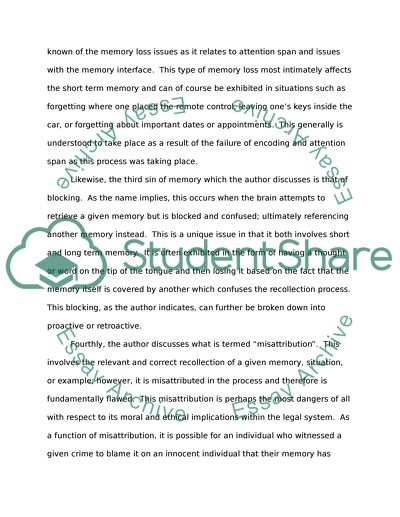Cite this document
(“A Discussion and Analysis of the Seven Sins of Memory Essay”, n.d.)
A Discussion and Analysis of the Seven Sins of Memory Essay. Retrieved from https://studentshare.org/miscellaneous/1617254-a-discussion-and-analysis-of-the-seven-sins-of-memory
A Discussion and Analysis of the Seven Sins of Memory Essay. Retrieved from https://studentshare.org/miscellaneous/1617254-a-discussion-and-analysis-of-the-seven-sins-of-memory
(A Discussion and Analysis of the Seven Sins of Memory Essay)
A Discussion and Analysis of the Seven Sins of Memory Essay. https://studentshare.org/miscellaneous/1617254-a-discussion-and-analysis-of-the-seven-sins-of-memory.
A Discussion and Analysis of the Seven Sins of Memory Essay. https://studentshare.org/miscellaneous/1617254-a-discussion-and-analysis-of-the-seven-sins-of-memory.
“A Discussion and Analysis of the Seven Sins of Memory Essay”, n.d. https://studentshare.org/miscellaneous/1617254-a-discussion-and-analysis-of-the-seven-sins-of-memory.


